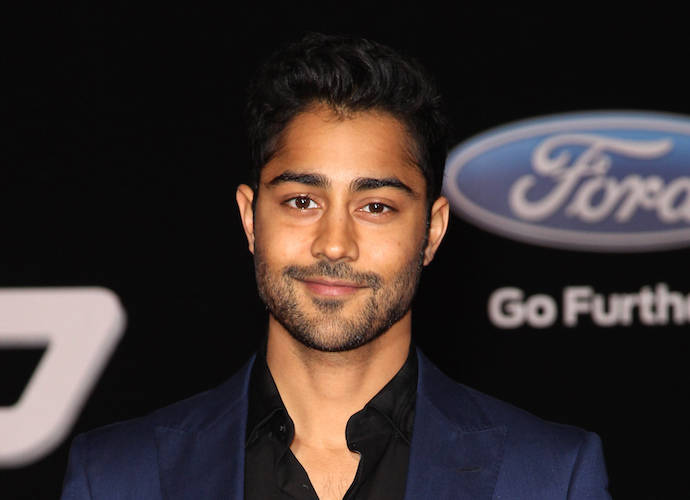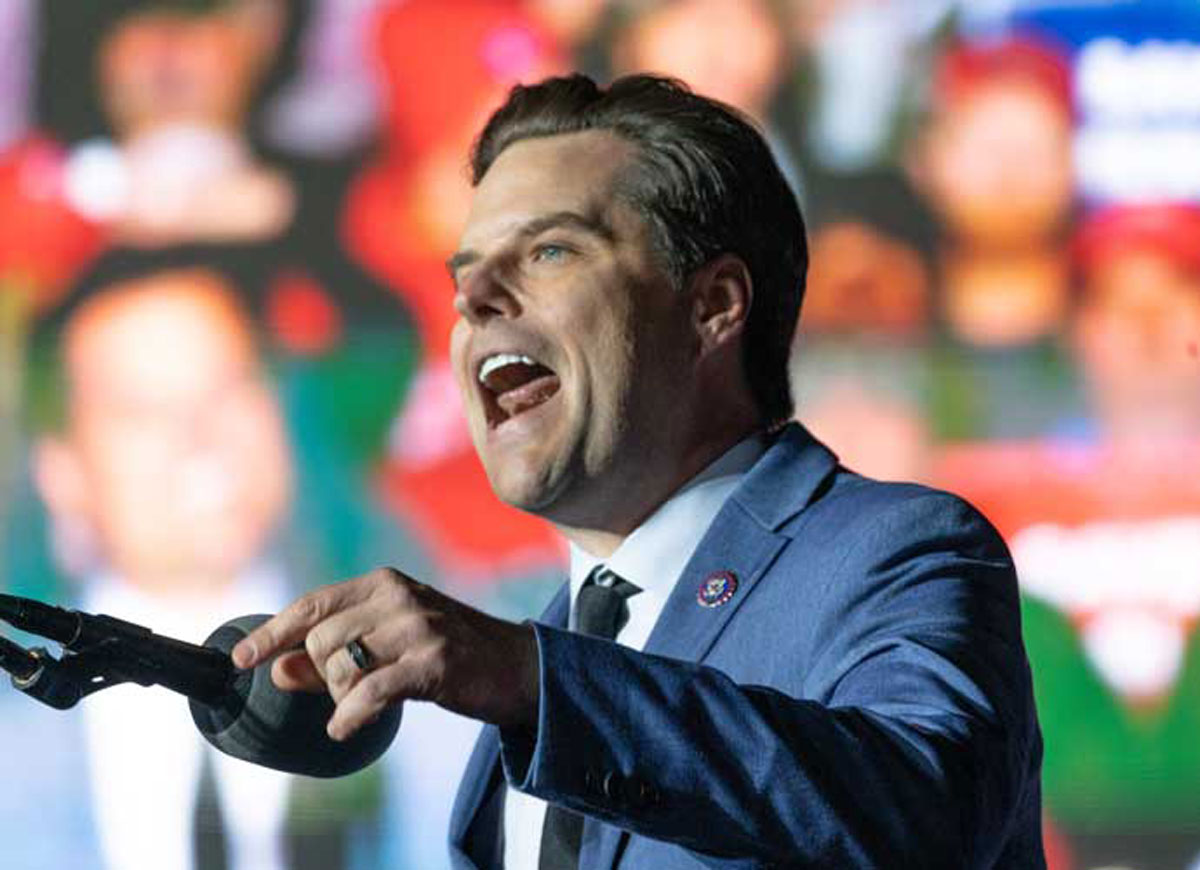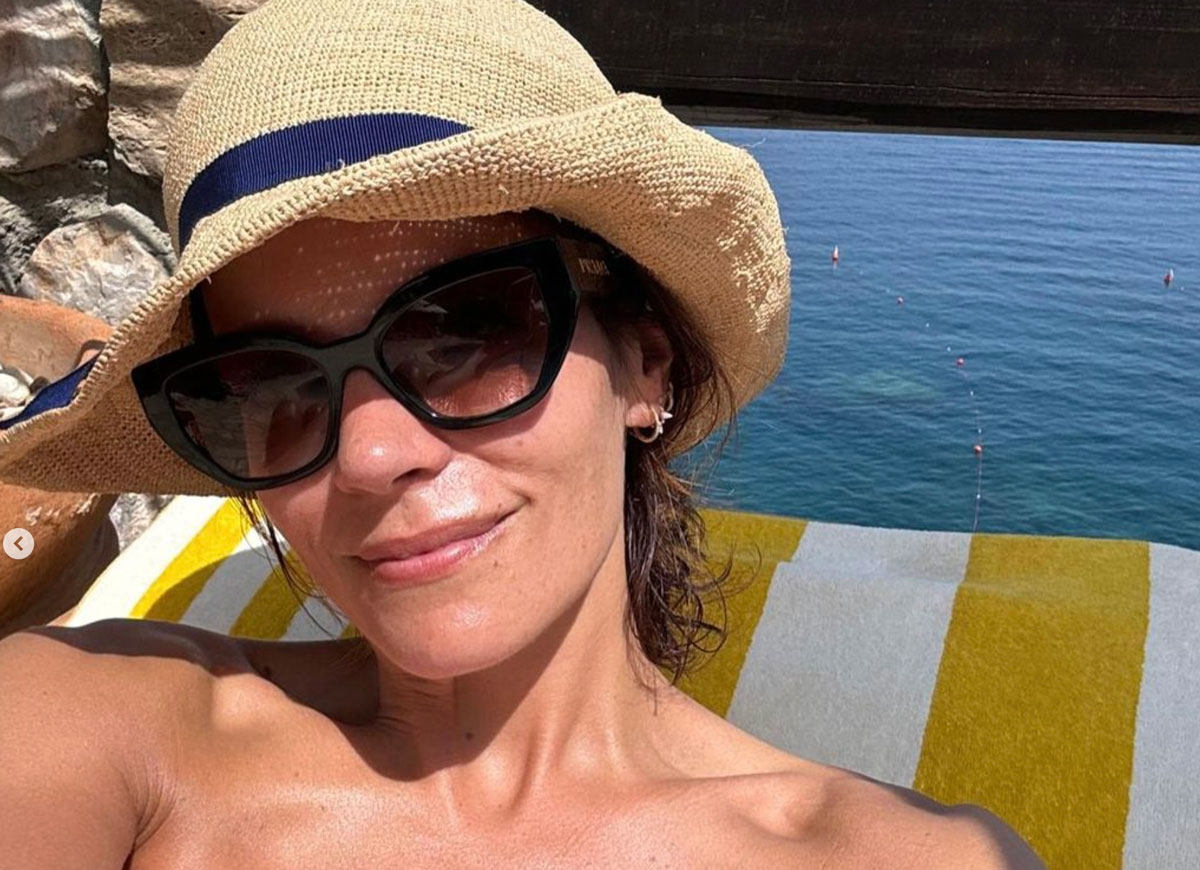Manish Dayal On ‘The Hundred-Foot Journey,’ Being Hollywood’s First Indian Heartthrob
Manish Dayal, who stars opposite Helen Mirren in the critically-acclaimed Hundred Foot Journey, made his big break in Hollywood this year, which saw him quickly become Hollywood’s first Indian heartthrob.
Manish Dayal On ‘Hundred-Foot’ Journey
Dayal was not expecting to wind up meeting with the likes of Steven Spielberg and Oprah Winfrey when he passed through the doors of DreamWorks studios awhile back to read for an animated part. But, the charismatic South Asian actor – following taped scene readings and countless meetings with studio executives – did just that, as he soon became the frontrunner to take the lead in The Hundred-Foot Journey.
“All those tapes went to Steven Spielberg and I got a call about five days later saying Steven Spielberg had watched those tapes and he was really excited about it,” Dayal revealed. “I just couldn’t believe it when I heard that. Those tapes were circulated to other producers like Oprah Winfrey and Julia Blake. In June of that year, so like 4 or 5 months later, I met Lasse Hallstrom in New York City and then the next day got I get a phone call saying that Steven Spielberg wanted to hire me.”
Dayal, who conversed with Oprah extensively about the movie and her own life and perspectives, calls her a “visionary.” As for his costar Mirren, Dayal gushed about the British actress’ vibrant sense of humor, as well as her incontestable skill as an actor that he was happy to see in action and learn from.
“I got to observe [Helen’s] process and see how she was building her character and the things that were easy for her. It was just cool to observe her,” Dayal said. “I think I learned a lot by doing that. She’s a legend as an actor, and as a young actor it was super valuable for me to watch her.”
With The Hundred-Foot Journey under his belt, Dayal has garnered a lot of attention for his acting – but also for his good looks. Since the film came out, he’s been featured on a number of young heartthrob lists, making the 31-year-old actor potentially the first Indian heartthrob to hit Hollywood. It’s a feat that hasn’t gone unnoticed to Dayal.
“I’ll tell you: It’s pretty awesome that people are putting me in this position where I get to be the first of anything,” Dayal admitted. “I am super grateful and thankful for that. I guess to be put on all these lists, it’s cool and it’s fun. But most importantly, what it shows me, what it tells me is that we’re moving forward to a place that allows South Asians, and I think minorities, can be put on this mainstream level.”
The Hundred-Foot Journey was released on DVD and BlueRay Dec. 2.
It all sort of started off with an audition for an animated DreamWorks project that I was up for. I met with DreamWorks’ head of casting over there. We ended up talking for a while and hanging out and started talking about all kinds of things. That night, I got a phone call from DreamWorks asking if I’d come in and read for a different project, a film they wouldn’t tell me the name of. So, they gave me some audition material that was from a different movie that’s already been made. They asked me to come in and read that. I came in and I went back into DreamWorks. I read those scenes. I must have read them like twenty times and did them all different ways. Everything was put on tape and I did a lot of taped meetings, things like that. All those tapes went to Steven Spielberg, and I got a call about five days later saying Steven Spielberg had watched those tapes and he was really excited about it. I just couldn’t believe it when I heard that. Those tapes were circulated to other producers like Oprah Winfrey and Julia Blake. So I did some more meetings and things like that. In June of that year, so like 4 or 5 months later, I met Lasse Hallstrom in New York City and then the next day got I get a phone call saying that Steven Spielberg wanted to hire me. So that is how I got the role.
No, I didn’t. Everything was put on tape.
Oh yeah! I met them both. I met Oprah on set. She came to visit us, and I got to hang out with her.
I got to know her and talk to her about this movie, and also about her. She’s a visionary. As you know, she’s connected to this movie in many ways. She still has a very clear perspective and point of view. It’s about a very unique young man who has a thirst to understand life and his higher purpose. It goes beyond the racial and cultural limitations we see so often, and I think that’s something she speaks to. This film is also an example of what I think is a very pure immigrant experience, one that requires you to move to a place and things are sort of stacked against, but then you use your resources and talents to survive and find success in a place that is designed against you, I guess. I think that sort of determination and adversity that one goes through in that environment are all things that I think Oprah spoke to and things she connected to on this movie.
Well, one thing I would say that a lot of people don’t know about her is that she is very funny. She makes a lot of jokes. I like to make jokes. We both probably made a lot of silly inappropriate jokes together. We laughed a lot. She also demanded that I try a frog leg, which I never had. So, that was funny. That was very early on in the process. We got to know each other a little bit off camera, because we were shooting a lot. I got to observe her process and see how she was building her character and the things that were easy for her. It was just cool to observe her. I think I learned a lot by doing that. She’s a legend as an actor, and as a young actor it was super valuable for me to watch her.
Absolutely. I’m a first generation immigrant, so I’m the first of my generation to be born in the United States. My mom and my dad were born outside of the United States. I think for me, I connected to this movie in many ways. I grew up in the South and, of course, it’s a place that doesn’t exactly have the most opportunities. I grew up in a very small town and it was unusual of course, but I would never trade the experience for anything because it always kept me very hungry. I remember just spending a lot of my time watching movies, and I did that a lot growing up. I watched a lot of movies and I think that is what sort of fueled my passion for film. My mom encouraged me take a film class and I ended up doing that, and I pursued the business in that way. I actually was able to get this very quick opportunity in a friend’s short film or something. I was in front of the camera for the first time and the experience was so awesome. I had no idea what I was doing at all. I was having fun and I eventually understood it – it clicked – and after that I was hooked. I’ve been pursuing it ever since. There are many things about my upbringing that sort of relate to the movie. Like my dad, for example, when he immigrated here, like the Kadam family had to rely on his instincts and his resources and his talent in order to survive and carry his family. I think that is what my character has to do. When he arrives in France the stakes are so high for him. He has these kids, and his wife has just passed away. He has a whole other set of circumstances he’s dealing with.
Very, very interesting you say that. I’ll tell you: It’s pretty awesome that people are putting me in this position where I get to be the first of anything. I am super grateful and thankful for that. I guess to be put on all these lists, it’s cool and it’s fun. But most importantly, what it shows me, what it tells me is that we’re moving forward to a place that allows South Asians, and I think minorities, can be put on this mainstream level. I think that it’s probably inevitable and it’s going to happen, but to be one of the people on the forefront of that is super cool. To be breaking ground in any shape or form is just, sort of a gift. I think that it is super awesome to be part of. We’re not quite there yet, but I hope we do get there soon and I hope to be apart of it.
You know, yes and no. Ultimately, it’s really up to me what I do. I think being typecast is something that – that term gets thrown around a lot – but I think it’s really up to the actor to control that. To me, typecast as a South Asian? Or typecast as like?
You know, yes. That’s always there. I’ve been super fortunate and lucky in my career to be a part of more progressive roles. I’ve played love interests opposite non-Indian girls before, and I think that is something that is not typical of South Asian casting. So, I think I’ve been super fortunate in that way to not be type casted.
Thank you, man! I appreciate that very much.
Get the most-revealing celebrity conversations with the uInterview podcast!




 by
by 



Leave a comment